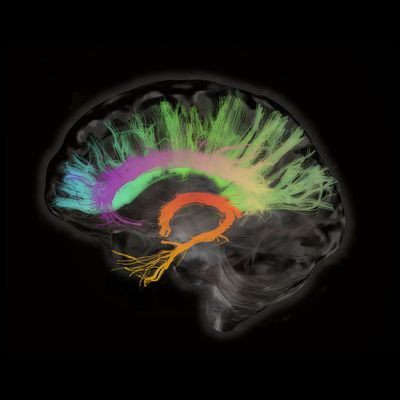
As is often the case with terrible, complicated diseases, there have been many false starts in the search for treatments that can cure or ameliorate the symptoms of Alzheimer’s disease. Recently, one particular substance has generated a fair bit of excitement, and a new study just published in Nature offers some encouraging — but by no means conclusive — evidence that we could be looking at the real deal.
The drug is called aducanumab, and the company that manufactures it, Biogen, thinks that when it is administered to Alzheimer’s patients, it might help reduce the so-called amyloid-β plaques that build up in their brains. Many researchers believe these plaques are at least partially responsible for the disease’s toll on memory, personality, and sense of self.
The study was conducted on 165 patients with early Alzheimer’s, and, as the authors write in the abstract, “one year of monthly intravenous infusions of aducanumab reduces brain Aβ in a dose- and time-dependent manner. This is accompanied by a slowing of clinical decline measured by Clinical Dementia Rating — Sum of Boxes and Mini Mental State Examination scores.” The fact that the researchers reported a slowing in the development of symptoms, rather than any reversal, should be put in context: For one thing, given the timetable of how Alzheimer’s symptoms develop, a significant slowing of cognitive decline could have a major quality-of-life impact on sufferers and their families. For another, this was a Phase 1b clinical trial, meaning that the point of the study was more to establish a proof of concept for the drug’s effectiveness, and to solidify the case that it is safe to administer to patients, than to prove it “works” (overall, under FDA clinical-trial rules, Phase 1 is more broadly about proving a drug is safe than proving it is effective).
In an interview with NPR’s Jon Hamilton, Biogen’s chief medical officer, Dr. Alfred Sandrock, reiterated the paper’s cautiously optimistic language. “We think we have something important here,” he said. “We hope we’re right because if it’s true it would benefit millions of patients. But we don’t know we’re right yet.” They — and we — will know more soon: NPR reports that “Biogen has already begun two much larger studies of aducanumab. They will include a total of 2,700 patients, and results are still several years off.”




